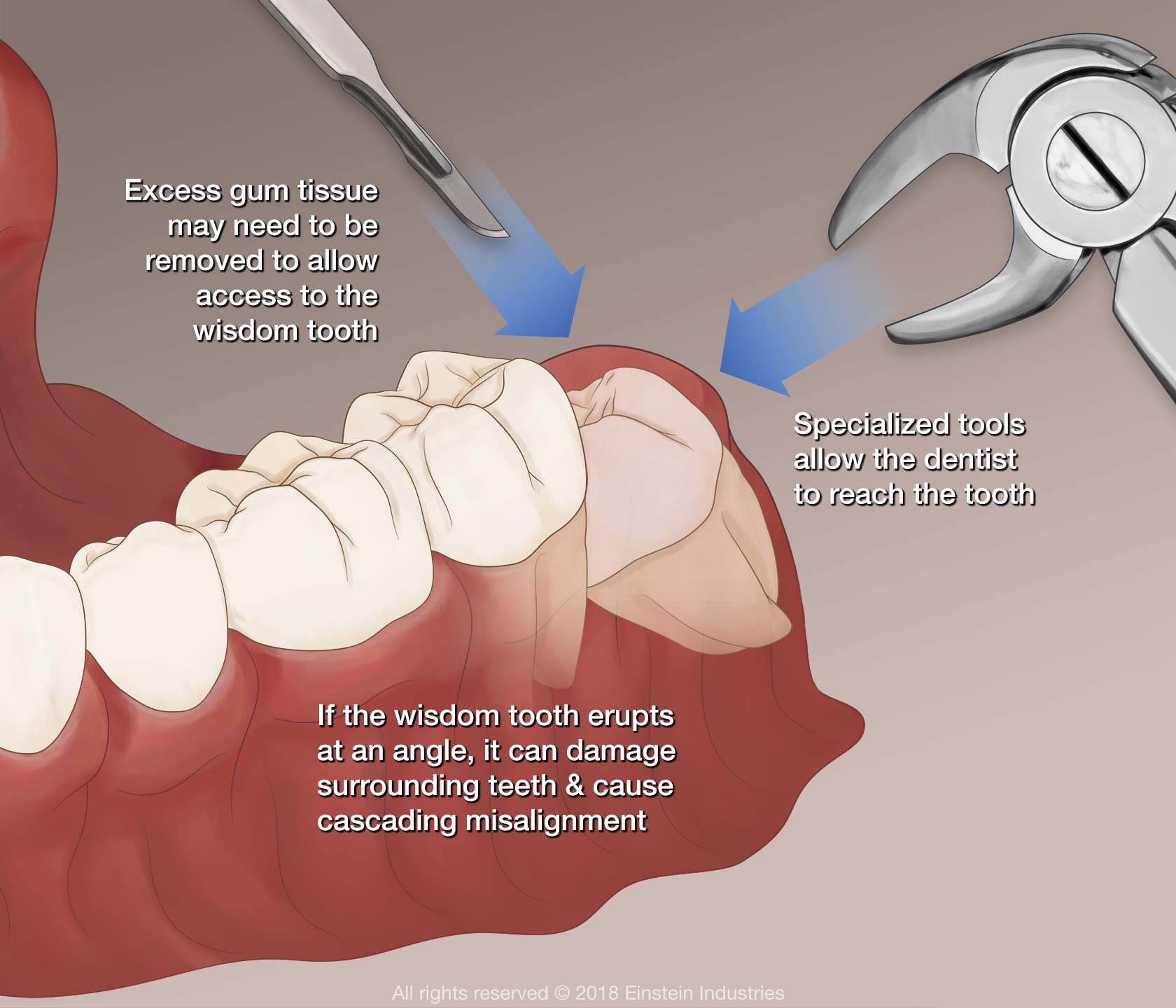Does Everyone Have Wisdom Teeth
Many times, however, wisdom teeth don't have room to grow properly and can cause problems. Erupting wisdom teeth can grow at various angles in the jaw, sometimes even horizontally.
The third molars are difficult to clean, so they could rot and infect nearby teeth; they may also crowd adjacent teeth, undoing years of straight alignments created by braces. For these reasons, dentists usually recommend removing wisdom teeth in young adults, before the teeth have the chance to attach to the jaw and complicate extraction. Wisdom teeth are impacted, they’ll most likely need to be removed. Cara menggunakan auto clicker. No Problems, No Extraction. Not everyone will need to have their wisdom teeth removed. If your jaw is large enough to accommodate all of your wisdom teeth and they begin erupting with no problems, there’s really no reason to remove your wisdom teeth.
Problems can include wisdom teeth that:. Remain completely hidden within the gums. If they aren't able to emerge normally, wisdom teeth become trapped (impacted) within your jaw. Sometimes this can result in infection or can cause a cyst that can damage other teeth roots or bone support. Emerge partially through the gums. Because this area is hard to see and clean, wisdom teeth that partially emerge create a passageway that can become a magnet for bacteria that cause gum disease and oral infection.
Crowd nearby teeth. If wisdom teeth don't have enough room to come in properly, they may crowd or damage nearby teeth.Some dentists recommend removing wisdom teeth if they don't fully emerge. Many dentists believe it's better to remove wisdom teeth at a younger age, before the roots and bone are fully formed, and when recovery is generally faster after surgery. This is why some young adults have their wisdom teeth pulled before the teeth cause problems.According to the American Dental Association, wisdom teeth removal may be necessary if you experience changes in the area of those teeth, such as:.
Pain. Repeated infection of soft tissue behind the lower last tooth. Fluid-filled sacs (cysts). Tumors. Damage to nearby teeth.
Gum disease. Extensive tooth decayThe decision to remove wisdom teeth isn't always clear.
Talk to your dentist or an oral surgeon about the position and health of your wisdom teeth and what's best for your situation. Wisdom teeth.
Does Everyone Have Wisdom Teeth Removed

American Dental Association. Accessed Nov. 2, 2016. Wisdom teeth management. American Association of Oral and Maxillofacial Surgeons. Accessed Nov.
2, 2016. The management of impacted third molar teeth. American Association of Oral and Maxillofacial Surgeons. Accessed Nov. 2, 2016.

Ghaeminia H, et al. Surgical removal versus retention for the management of asymptomatic disease-free impacted wisdom teeth (review). Cochrane Database of Systematic Reviews. Accessed Nov.
Does Everyone Have Wisdom Teeth
2, 2016. Renton T, et al. Problems with erupting wisdom teeth: Signs, symptoms, and management.

Wisdom Teeth In Older Adults
British Journal of General Practice. 2016;66:e606. Salinas TJ (expert opinion).
Mayo Clinic, Rochester, Minn.